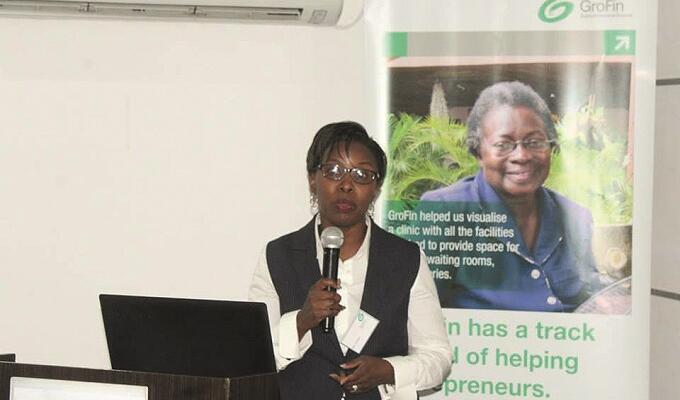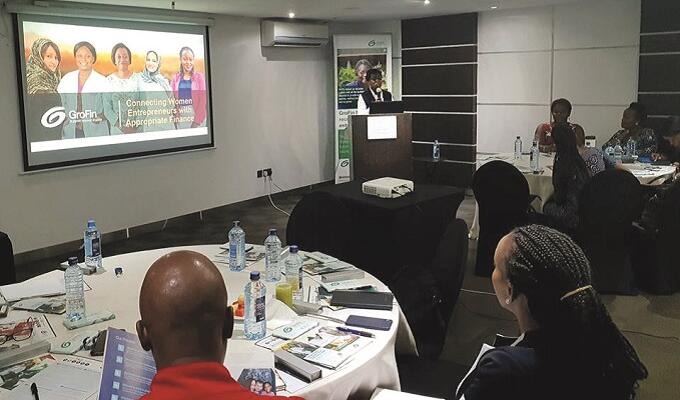


Stories
SheTrades Invest: Catalysing financing for women-owned businesses to scale up
1 July 2019
The challenge
Micro, small, and medium-sized enterprises (MSMEs) account for around 90 percent of businesses and the vast majority of jobs worldwide. In developing countries, the productivity gap between these firms and their larger counterparts is especially wide, which translates into lower wages and worse working conditions for much of the workforce. Major opportunities to reduce poverty and advance inclusive growth lie in enabling these MSMEs to become more competitive and tap into international value chains.
But however good their business idea, entrepreneurs and MSMEs often face an insurmountable obstacle to scaling up investment and production: a lack of financing.
Even more so in developing economies than in developed ones, local capital markets and investors prioritize larger and more mature businesses. Micro-businesses might be able to access microfinance loans of up to a few thousand dollars, but small and mid-sized firms struggle with what has been termed a ‘missing middle’ for amounts too big for micro-finance, but too small for commercial banks or conventional equity investors.
While potential lenders and investors typically overestimate the risks presented by MSMEs, it is also true that small businesses frequently lack management skills, clear financial statements and understanding of the kinds of information prospective sources of financing might require. The result is massive unmet financing needs: between $900 billion and $1.1 trillion, according to one estimate by the International Finance Corporation.
For women entrepreneurs and their businesses, financing can be even harder to secure. Women are less likely than men to have bank accounts, putting them at a disadvantage in the traditional financial system. Regulatory and legal issues related to property ownership by women in many countries make it harder for them to post collateral to obtain loans. Women entrepreneurs are often forced to resort to alternative funding mechanisms such as savings clubs and mutual loan groups, but this makes them even more reliant than men are on personal networks of family and friends, and typically cannot provide the funding amounts needed for growth at scale. Women-owned business enterprises receive only 3% of global venture capital funding and face an estimated annual credit gap of $285 billion.
Improving access to credit for women-owned businesses would help budding entrepreneurs create new businesses and jobs. Companies owned by women typically employ more women, including in senior management. Given that women account for a disproportionately large share of the world’s poor and that women spend more of their incomes than men do on health and education, thriving women-owned businesses would make a large contribution to sustainable and inclusive growth.
The solution
Under the umbrella of its SheTrades initiative, ITC has created SheTrades Invest, an alliance of long-term and development-oriented impact investors and development finance institutions to commit capital to women-led businesses in developing countries. It was launched in December 2018 – on the first anniversary of the Buenos Aires Declaration on Women and Trade – in partnership with GroFin, a private development finance institution that invests in small and growing businesses in Africa and the Middle East.
Investors participating in SheTrades Invest will deploy risk-impact capital into vetted and eligible women-owned MSMEs to create economic growth and jobs. Investment partners will be selected on the basis of their ability to target strong social returns and, where possible, to provide funding to enterprises at rates that compare favourably with traditional local sources of finance. ITC’s contribution will be to leverage the large network of women entrepreneurs associated with its SheTrades initiative to identify high-potential businesses, improve their investment readiness through training to upgrade their financial and managerial capacities, and offer coaching, mentoring and networking activities.
GroFin has since 2004 invested in over 700 MSMEs, raising $500 million in risk capital from development finance institutions, private impact investors and the international development agencies of countries such as the Netherlands, the United Kingdom and the United States. As part of the first stage of SheTrades Invest, GroFin will invest €10 million in women-owned businesses in the 14 countries where it already operates: Côte d’Ivoire, Egypt, Ghana, Iraq, Jordan, Kenya, Nigeria, Oman, Rwanda, Senegal, South Africa, the United Republic of Tanzania, Uganda and Zambia. ITC and GroFin have put out a call for businesses in these countries to apply to receive training, mentoring and, potentially, investment.
The future
ITC is working to attract more impact investors and development finance institutions to join SheTrades Invest. The initiative seeks to expand into Latin America and South and Southeast Asia in 2019 by bringing in investors interested in these geographic areas.
For businesses seeking investment, ITC will seek to ensure that the initiative can provide the full portfolio of financial instruments from equity to debt, as well as meet the funding needs of enterprises of very different sizes.
Micro, small, and medium-sized enterprises (MSMEs) account for around 90 percent of businesses and the vast majority of jobs worldwide. In developing countries, the productivity gap between these firms and their larger counterparts is especially wide, which translates into lower wages and worse working conditions for much of the workforce. Major opportunities to reduce poverty and advance inclusive growth lie in enabling these MSMEs to become more competitive and tap into international value chains.
But however good their business idea, entrepreneurs and MSMEs often face an insurmountable obstacle to scaling up investment and production: a lack of financing.
Even more so in developing economies than in developed ones, local capital markets and investors prioritize larger and more mature businesses. Micro-businesses might be able to access microfinance loans of up to a few thousand dollars, but small and mid-sized firms struggle with what has been termed a ‘missing middle’ for amounts too big for micro-finance, but too small for commercial banks or conventional equity investors.
While potential lenders and investors typically overestimate the risks presented by MSMEs, it is also true that small businesses frequently lack management skills, clear financial statements and understanding of the kinds of information prospective sources of financing might require. The result is massive unmet financing needs: between $900 billion and $1.1 trillion, according to one estimate by the International Finance Corporation.
For women entrepreneurs and their businesses, financing can be even harder to secure. Women are less likely than men to have bank accounts, putting them at a disadvantage in the traditional financial system. Regulatory and legal issues related to property ownership by women in many countries make it harder for them to post collateral to obtain loans. Women entrepreneurs are often forced to resort to alternative funding mechanisms such as savings clubs and mutual loan groups, but this makes them even more reliant than men are on personal networks of family and friends, and typically cannot provide the funding amounts needed for growth at scale. Women-owned business enterprises receive only 3% of global venture capital funding and face an estimated annual credit gap of $285 billion.
Improving access to credit for women-owned businesses would help budding entrepreneurs create new businesses and jobs. Companies owned by women typically employ more women, including in senior management. Given that women account for a disproportionately large share of the world’s poor and that women spend more of their incomes than men do on health and education, thriving women-owned businesses would make a large contribution to sustainable and inclusive growth.
The solution
Under the umbrella of its SheTrades initiative, ITC has created SheTrades Invest, an alliance of long-term and development-oriented impact investors and development finance institutions to commit capital to women-led businesses in developing countries. It was launched in December 2018 – on the first anniversary of the Buenos Aires Declaration on Women and Trade – in partnership with GroFin, a private development finance institution that invests in small and growing businesses in Africa and the Middle East.
Investors participating in SheTrades Invest will deploy risk-impact capital into vetted and eligible women-owned MSMEs to create economic growth and jobs. Investment partners will be selected on the basis of their ability to target strong social returns and, where possible, to provide funding to enterprises at rates that compare favourably with traditional local sources of finance. ITC’s contribution will be to leverage the large network of women entrepreneurs associated with its SheTrades initiative to identify high-potential businesses, improve their investment readiness through training to upgrade their financial and managerial capacities, and offer coaching, mentoring and networking activities.
GroFin has since 2004 invested in over 700 MSMEs, raising $500 million in risk capital from development finance institutions, private impact investors and the international development agencies of countries such as the Netherlands, the United Kingdom and the United States. As part of the first stage of SheTrades Invest, GroFin will invest €10 million in women-owned businesses in the 14 countries where it already operates: Côte d’Ivoire, Egypt, Ghana, Iraq, Jordan, Kenya, Nigeria, Oman, Rwanda, Senegal, South Africa, the United Republic of Tanzania, Uganda and Zambia. ITC and GroFin have put out a call for businesses in these countries to apply to receive training, mentoring and, potentially, investment.
The future
ITC is working to attract more impact investors and development finance institutions to join SheTrades Invest. The initiative seeks to expand into Latin America and South and Southeast Asia in 2019 by bringing in investors interested in these geographic areas.
For businesses seeking investment, ITC will seek to ensure that the initiative can provide the full portfolio of financial instruments from equity to debt, as well as meet the funding needs of enterprises of very different sizes.




